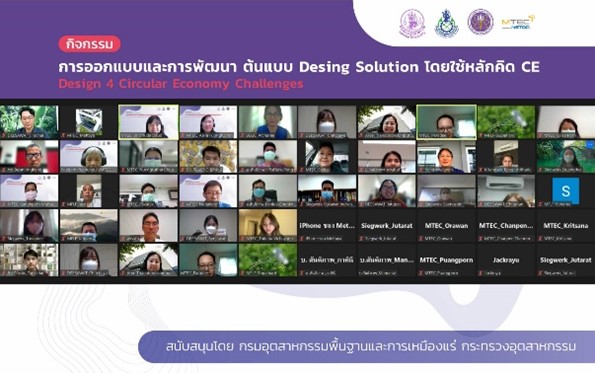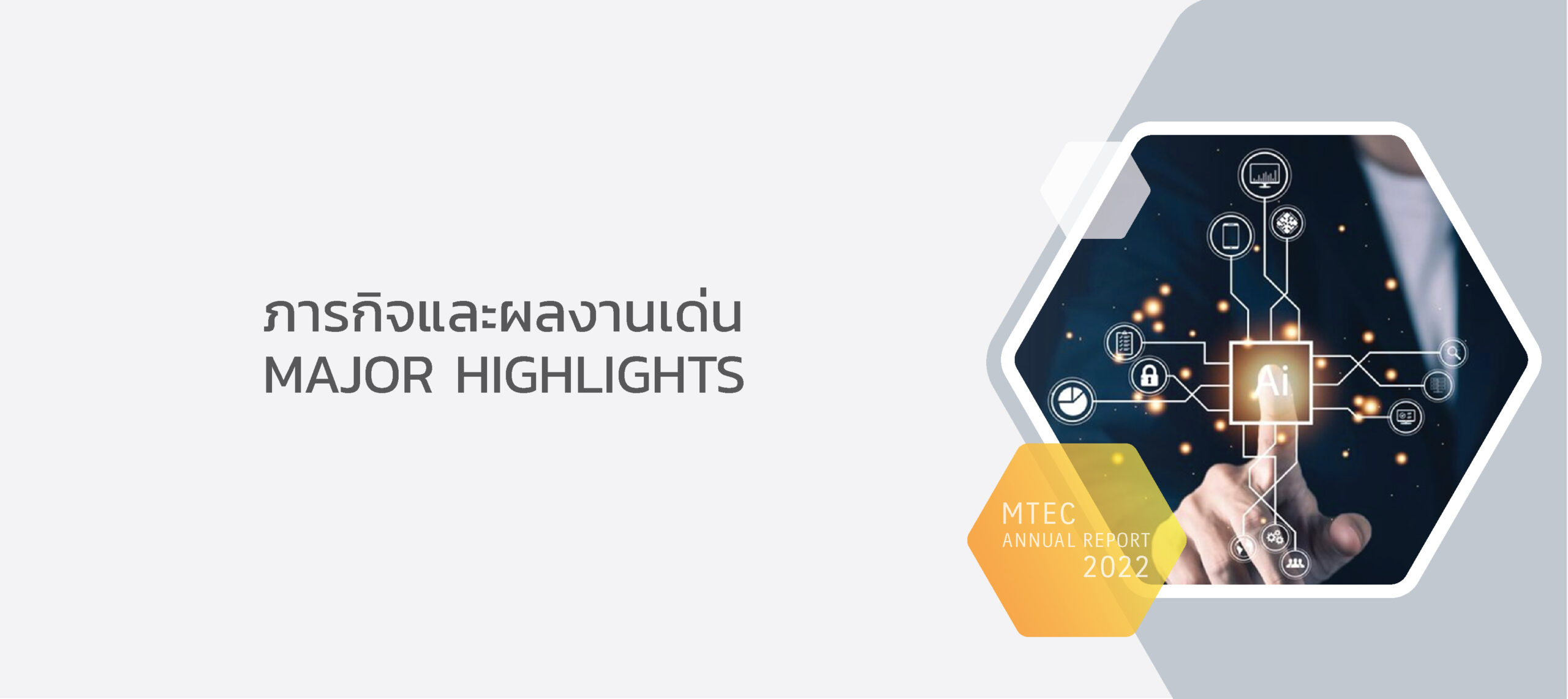
The core operational plan of MTEC
MTEC on driving the Circular Economy
The BCG model is a holistic economic development that includes three types of economies, namely the Bioeconomy, Circular Economy, and Green Economy. This model is an important mechanism in developing the country for sustainable growth.
MTEC places importance on the BCG economic model, especially the circular economy, which is consistent with its expertise. MTEC, therefore, has cooperated with partners and stakeholders to drive a circular economy in Thailand.
So far, an industrial growth is tied to a linear economy, which uses resources to produce things and discard them as waste after use. This approach has impacted the environment and the quality of society. For example, the amount of waste is constantly increasing, and hazardous substances from a waste are leaking into the environment. There will also be a chance for natural resources shortage in the future.
On the contrary, if Thailand moves into a circular economy based on six interconnected principles, such as systems thinking, value creation, value sharing, resource availability focus, resource traceability, and ecosystem resilience, it will be able to create tangible positive change.
The role of MTEC in driving a circular economy with local and international agencies consists of 6 areas:
- Building knowledge and understanding about the circular economy, accelerating design skills, and developing solutions for entrepreneurs and related parties, such as
- A project to promote “Design for Circular Economy to create sustainable use of resources”.
- A project to create “Creating bilateral cooperation on designing for the circular economy De4CE and the Mechanism of post-use Plastic Assessment.”
- Creating supporting factors and tools for the circular economy development, such as
- A study of methods for estimating the amount of food waste at the household level appropriate to the urban context.
- An assessment of food loss in oil palm products to identify measures to reduce losses throughout the value chain and report on the Sustainable Development Goals 12.3.1.
- Establishing critical rules and standards to move towards a circular economy both nationally and internationally by working as a director or sub-committee in important activities, such as
- Academic committee jointly established ISO/TC 323: Circular economy, IEC/TC 111: Environmental standardization
- Academic Committee of TISI, Academic Sub-Committee, Faculty 14, Circular Economy Standards, Academic Branch Committee, Faculty 73, Environmental Standards for Electrical and Electronic Products
- Stockholm Convention Subcommittee and the Basel Convention Subcommittee
- Supporting an establishment of national policies based on information, facts, and material science knowledge, such as
- The preparation of the National POPs Inventory, 2nd Edition, and (draft) National Management Plan for Implementation of the Stockholm Convention on Persistent Particulate Matters, 2nd Edition.
- A project to develop testing techniques for screening PCBs, PCNs, SCCPs, and Phthalates in oils, paints, and soft plastics.
- Supporting an establishment of regional policies, such as
- A CAP-SEA project: Collaborative Action for Single-Use Plastic Prevention in Southeast Asia
- Conducting research and development to create solutions for the transition to a circular economy, which is currently carried out in the original design stage, production, and the efficient introduction of renewable materials and resources back into the system.
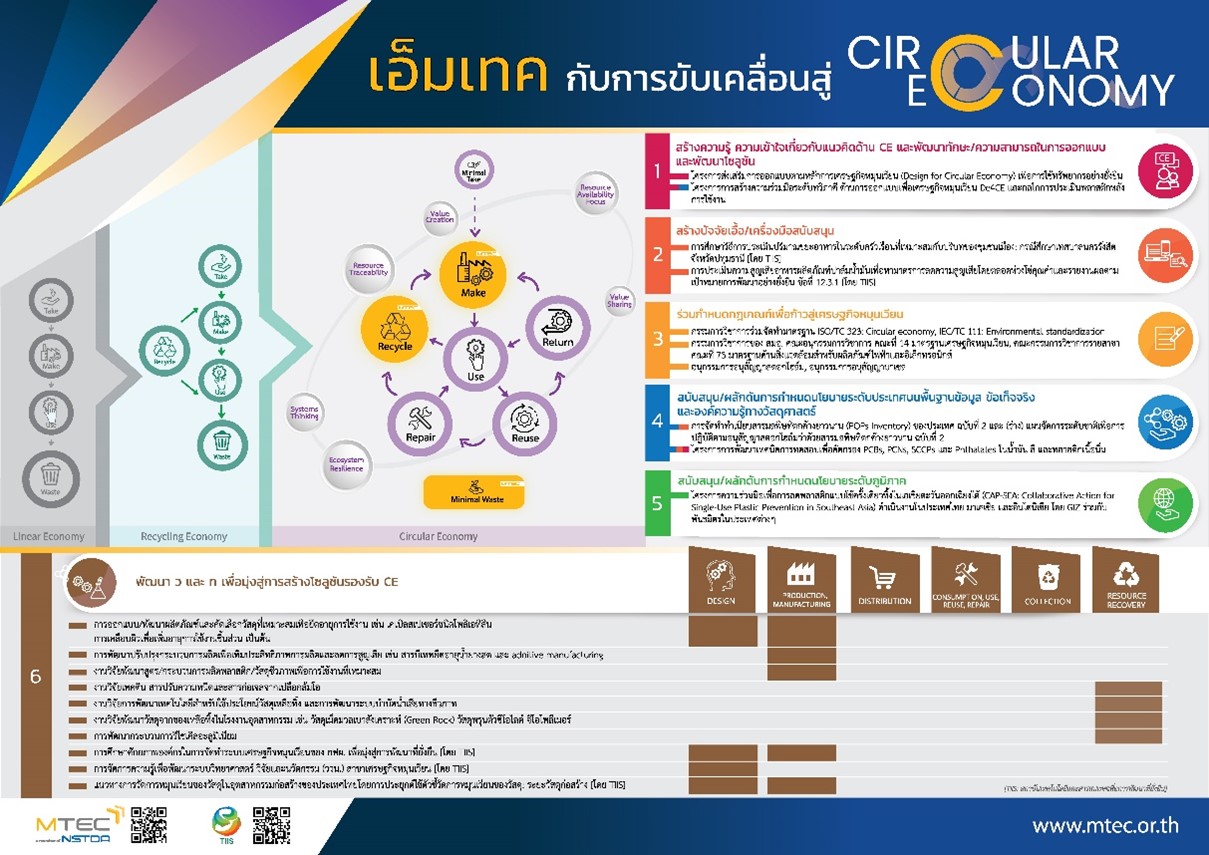

In the fiscal year 2022, MTEC has created key contributions to drive the circular economy as follows.
“Creating bilateral cooperation on designing for the circular economy De4CE and the Mechanism of post-use Plastic Assessment.”
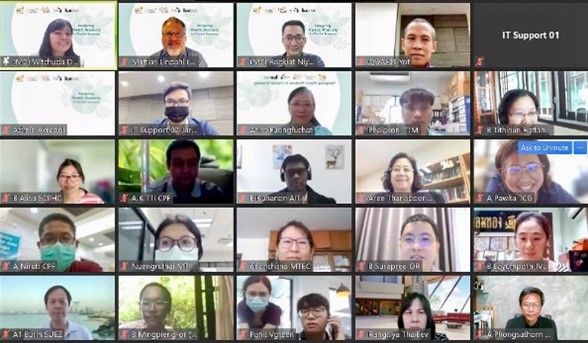
was held during June 1–2, 9–10, 16 and 23, 2021.
Circular Economy Talk: Circularity Performance assessment at the 17th NSTDA Annual Conference (NAC2022)
MTEC had launched a Circular Economy Talk on the topic of Circularity Performance assessment at the 17th NSTDA Annual Conference (NAC2022). This online forum was organized to answer key issues related to circularity performance, such as its importance, evaluation and good circularity indicators. The mechanisms and agencies that can provide assistance to Thai entrepreneurs to make a transition into CE and be internationally recognized are also identified. There were more than 200 audiences attending this event and sharing their opinions.
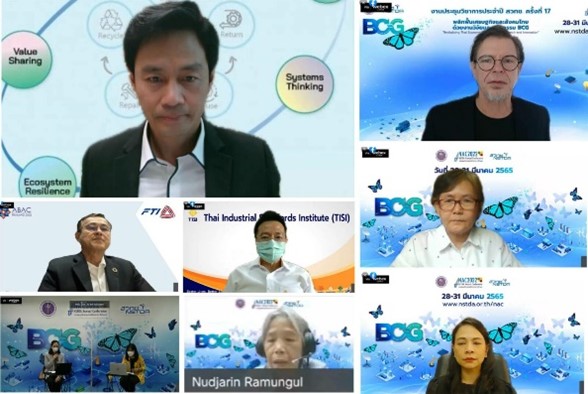
“Food Waste” activity under the circular economy concept
MTEC and the Technology and Informatics Institute for Sustainability (TIIS) had organized the “Food Waste” activity under the circular economy concept. Concepts and guidelines for assessing food waste quantitatively and data collection method to track food wastes were presented to science teachers and guidance teachers in Khlong Luang District in order to raise their awareness and help them contribute to reduce food waste from a leftover consumption. More than 30 participants were participating in the seminar.
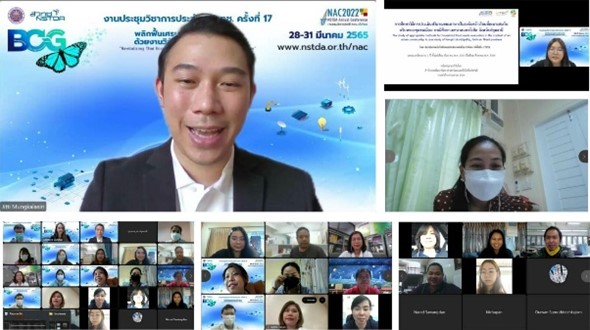
VDO
Design for Circular Economy to create sustainable use of resources.
The National Metal and Materials Technology Center (MTEC) together with the Department of Primary Industries and Mines, Ministry of Industry, had conducted a project promoting Design for Circular Economy to create sustainable use of resources to enable entrepreneurs to apply designs to create new solutions to support a circular economy.
